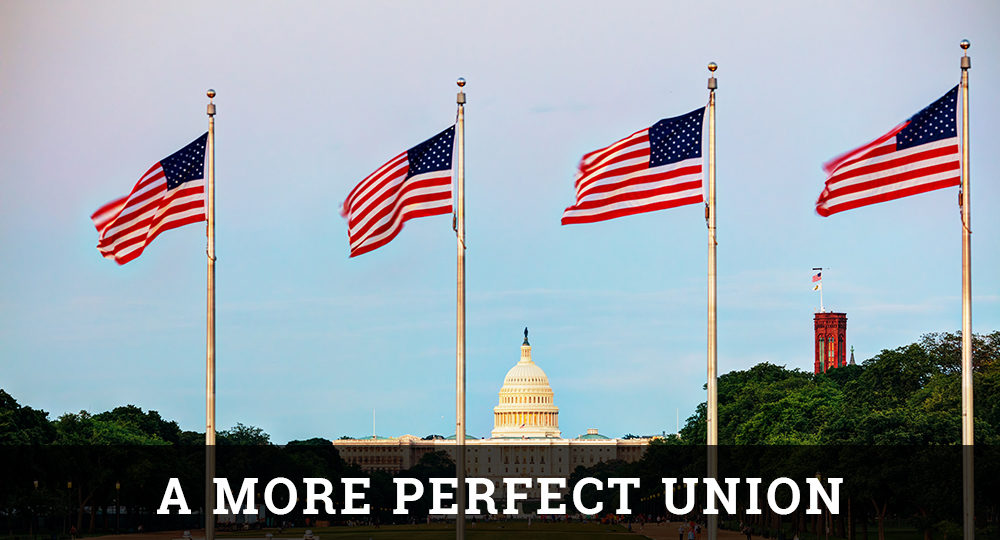The Hero Invasion
The city of Houston ignited a Bill of Rights uproar a few months ago, and the controversy is not likely to die down anytime soon.
It started when the Houston City Council, at the urging of Mayor Annise Parker, passed the Houston Equal Rights Ordinance (HERO). The law added homosexuality and “gender identity” to the list of legally protected classifications.
A sizable segment of the citizenry objected, including a number of Christian pastors who opposed HERO from their pulpits. Meanwhile, civic activists mounted a petition campaign to force HERO to a public referendum, hoping residents would vote it down. To succeed, they needed more than 17,000 signatures. They obtained more than 50,000.
The trouble occurred when Houston officials examined the petition and questioned whether it had been properly prepared. According to them, some signatures were missing. They also alleged that some of the signers were not Houston residents.
The anti-HERO group pointed out it still had enough signatures to exceed the minimum needed. When the City of Houston refused to budge, the activists filed a lawsuit, asking a court to decide the rather technical issue.
It is customary in such civil lawsuits for the opposing parties to file formal demands for relevant evidence and information from the other side (termed discovery). The problem in this case is that the aggressive discovery effort mounted by the city’s attorneys (who, of course, also represented Mayor Annise Parker) consisted of serving subpoenas on five local pastors, demanding copies of every sermon they ever preached in their churches over the course of several years on the subject of the HERO law or “Mayor Annise Parker, homosexuals, or gender identity.” Mayor Parker is married to another woman.
These pastors were not even parties to the lawsuit. They were simply innocent, interested bystanders. The only thing they had ever done to warrant this bewildering invasion of their rights was to preach Bible-based criticisms of HERO. But apparently that was enough.
The public outcry against Houston’s intrusion into the churches and their pastors was vociferous. But Mayor Parker was unmoved. She tweeted her support for the subpoenas: “If the 5 pastors used pulpits for politics, their sermons are fair game.” She could not have anticipated what would happen next.
A host of legal experts began voicing their dismay with the intimidation by inquisition. The list included University of Houston Law Professor Peter Linzer, Texas Attorney General Greg Abbott, U.S. Sen. Ted Cruz (R-TX), and U.S. Commission on Civil Rights member Peter Kirsanow.
Even the Texas branch of the American Civil Liberties Union denounced the tactic. Eventually, even Mayor Parker had to admit there was “no question” the subpoenas were “overly broad.” Houston’s attorneys said they would “narrow” their demands to exclude the sermons but would still demand church leaders be forced to disclose other communications they have authored on homosexuality, including emails.
Some Christians may think this fracas is much ado about nothing. But I couldn’t disagree more. This case touches on the most basic notions of religious liberty. To misuse the levers of our judicial system to demand that pastors give the government evidence of what they preach is an abusive chilling of the free exercise of religion.
If you think a government subpoena is harmless, beware. If my time in Washington has taught me anything, it is this: The power to “investigate,” whether by subpoena or otherwise, is the power to destroy.
When drafting the Bill of Rights, Founding Father James Madison was keenly aware of similar religious-liberty abuses. Baptist pastors in his home state of Virginia were being jailed for refusing to comply with laws requiring them to be licensed before preaching. The same type of laws had flourished in England a century earlier. As a result, John Bunyan ended up writing portions of his famous Pilgrim’s Progress from the confines of a Bedford jail.
Madison promised to end such tyranny, and the result was his advocacy and draftsmanship that contributed to the Religion Clauses in the First Amendment of the U.S. Constitution.
A mere one or two degrees separate the violations then from the overbearing audacity of the City of Houston today. We ignore these warning signs at our peril.








